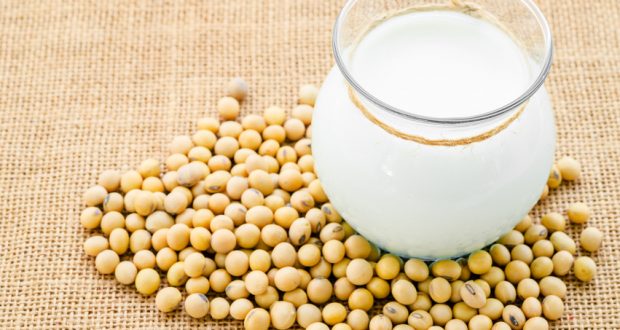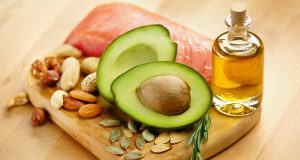You’ve seen them in the supermarket – soy milk, soy cheese, soybeans, the entire spectrum of soy products. Advertised as “healthier proteins”, these products have grown in popularity in recent years. However, there has been controversial research regarding the safety of these products and their potential effects on health. So, when it comes to soy, should you avoid it or enjoy it?
Issue #1: Soy causes breast cancer
Research has shown that exposure to excess estrogen can contribute to the development of breast cancer. Soy products contain plant hormones called isoflavones. Found in a number of legumes and vegetables, soybeans are the most concentrated source of isoflavones in our diet. Isoflavones do bind to estrogen receptors in the body, and can have similar effects to estrogen. However, this effect is not nearly as strong as with animal-based estrogen, and our own human estrogen is over 1000-times stronger.
Issue #2: Soy is not safe for the heart
Research suggests that eating foods containing those same isoflavones every day, may help young adults lower their blood pressure, particularly African-Americans. The isoflavones work by prompting the body to produce nitric oxide, which dilates blood vessels and takes pressure off of the vessel walls.
Whole soy foods also contain high levels of healthy protein and fiber. A good balance of protein and fiber is not only good for heart health, but overall health and blood sugar as well. When it comes to blood sugar, the more fiber, the better.
Issue #3: Soy is bad for the thyroid
Research suggests that in individuals with normal thyroids, soy does not negatively affect thyroid function.
However, soy may be dangerous for those who are taking medication to treat an existing thyroid problem. This is because soy products can undermine the absorption of the thyroid medication in the gut, making it less effective. Talk to your physician about the affects that soy products may have on any medications you are taking.
Like all foods, consume soy in moderation. One to two servings of whole or fermented soy foods is the recommended daily intake. (One serving is a half-cup of tofu or 1 cup of soy milk.)
But not all soy products are created equal. Thanks to savvy marketing, most people think any soy product is a good choice, a healthier choice. Unfortunately, this isn’t true. How can we make the right selections to ensure we enjoy the best nutrition from soy foods?
Avoid processed soy products. Look for the words “soy protein” on the label. This means the product has been processed. When soy is processed, the nutrients are stripped away, and all that is left is empty calories. Foods like these are also likely to contain added sugars, bad fats and refined flours. For example – soy burgers, soy bacon, soy cheese, and soy energy bars.
Soy milk is widely available, and depending on the brand you choose, can be a great way to get a serving of soy. However, you have to make the right choice. Most types of soy milk in the supermarket dairy section are processed and are not made with real soy beans, but rather from soy protein isolate. Many also contain preservatives and a ton of added sugar to make the milk taste sweeter. Fresh, whole-bean soy milk is best, it’s often found at health food stores.
Be wary of the listed expiration date. The further away the expiration date, the more likely the soy milk contains additives and preservatives to extend shelf-life. Also check the label for hidden or added sugars. “Brown rice syrup” or “evaporated cane juice” are ingredients you want to avoid.
Whole soy foods are your best bet. Just like with all foods, whole varieties have not been processed, so they have the most nutritional benefits.
You have likely heard of whole soy foods like tofu and edamame. Tofu, blocks of coagulated soymilk, is packed with calcium, is versatile in many different recipes, and is easy to find and prepare. Tofu is also high in omega-3 fats, which encourage healthy brain function and lower risk of degenerative brain diseases like dementia. Get your tofu on with this simple Asian stir-fry.
Edamame (young green soybeans) are a great source of protein.Increasing the amount of protein in your diet can boost your metabolism. Just one half-cup of edamame provides 8 grams of protein – triple the protein content of most other vegetables. They steam easily and quickly and are a great snack by themselves, or enjoy as a crunchy addition to your favorite salads.
Other whole soy options include tempeh and miso. These are made of fermented cooked soybeans. The process of fermentation allows nutrients to be more easily absorbed by the body, as fermented foods contain natural good-for-your-gut probiotics. Tempeh is high in protein and contains vitamins B2, B6, and B3 along with magnesium and iron. Miso is rich in vitamin B12, and aids in the body metabolizing fats and carbohydrates. Miso can be high in sodium, so be sure to choose the low-sodium variety.
Enjoying high-quality, whole, natural sources of soy can be a great way to increase your protein, fiber, vitamin and mineral consumption. In moderation, these products can contribute to more stable blood sugar, and overall health.
Sources: http://www.doctoroz.com/article/soy-good-bad-and-best?page=4
 Diabetic Kitchen
Diabetic Kitchen





Recent Comments